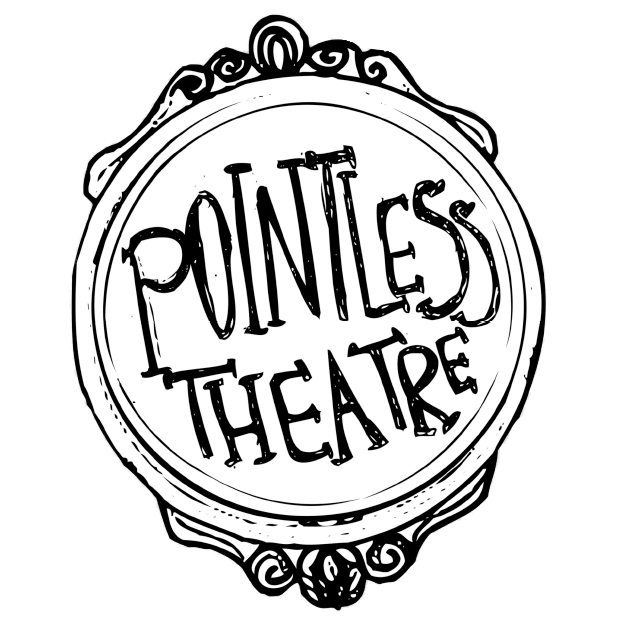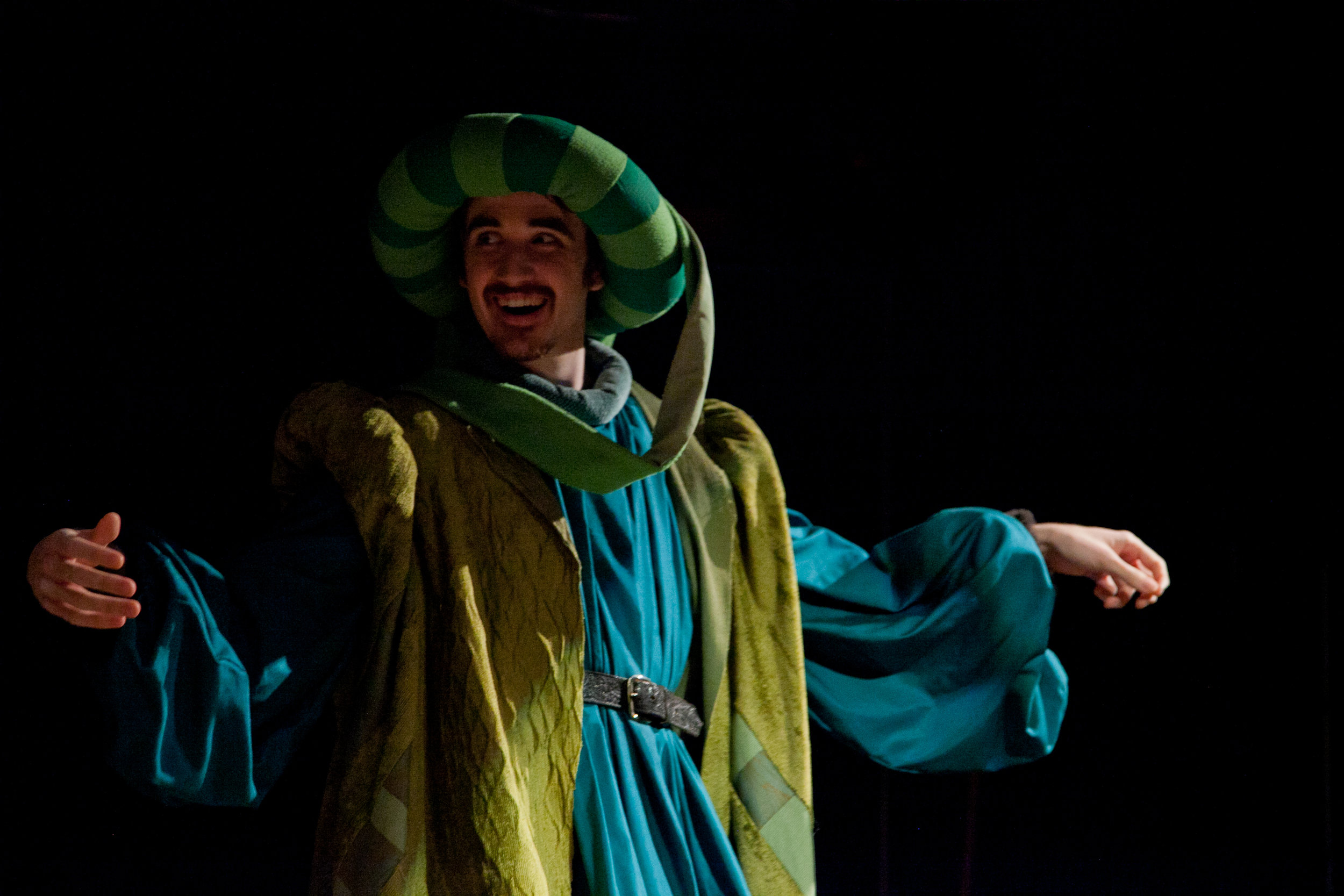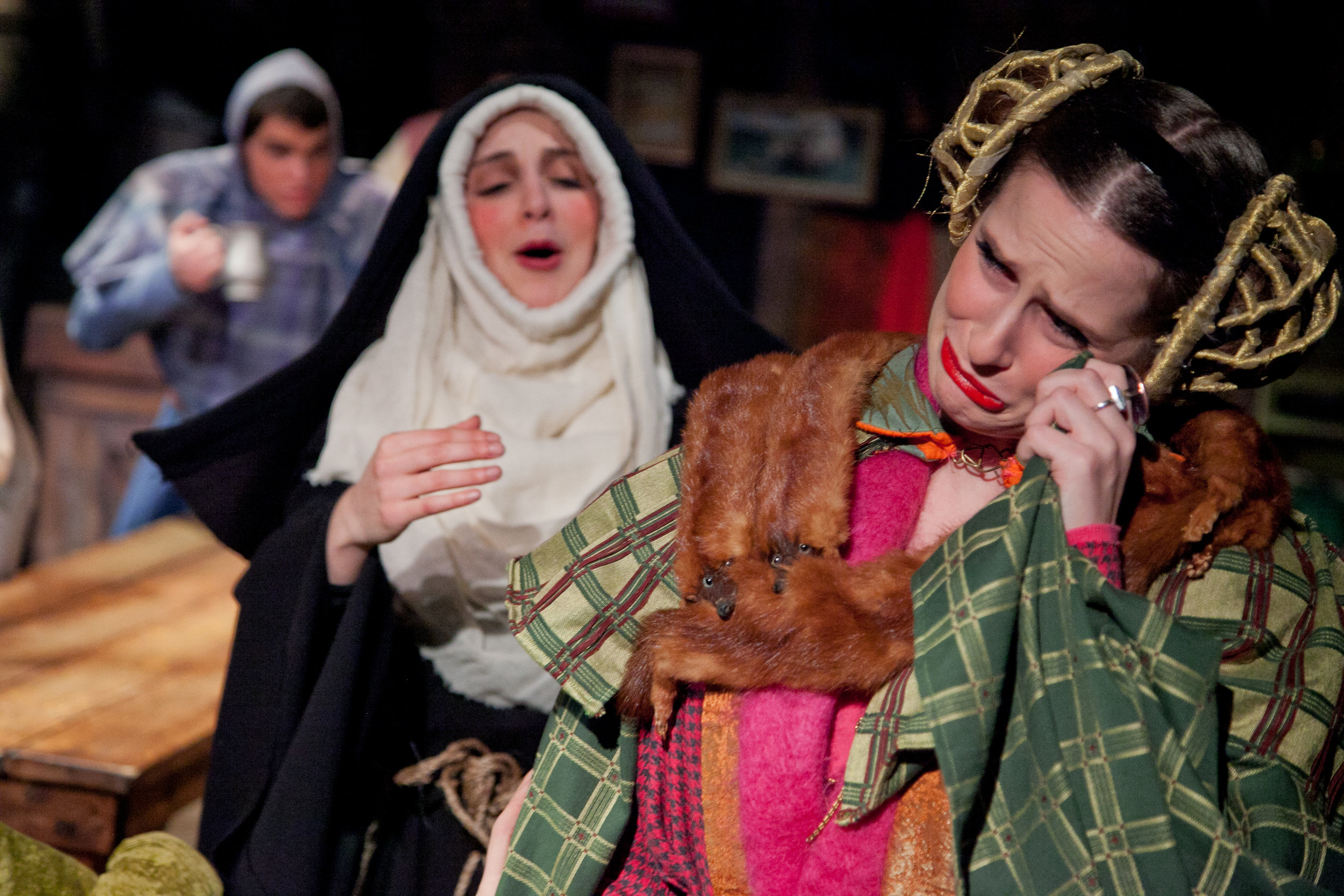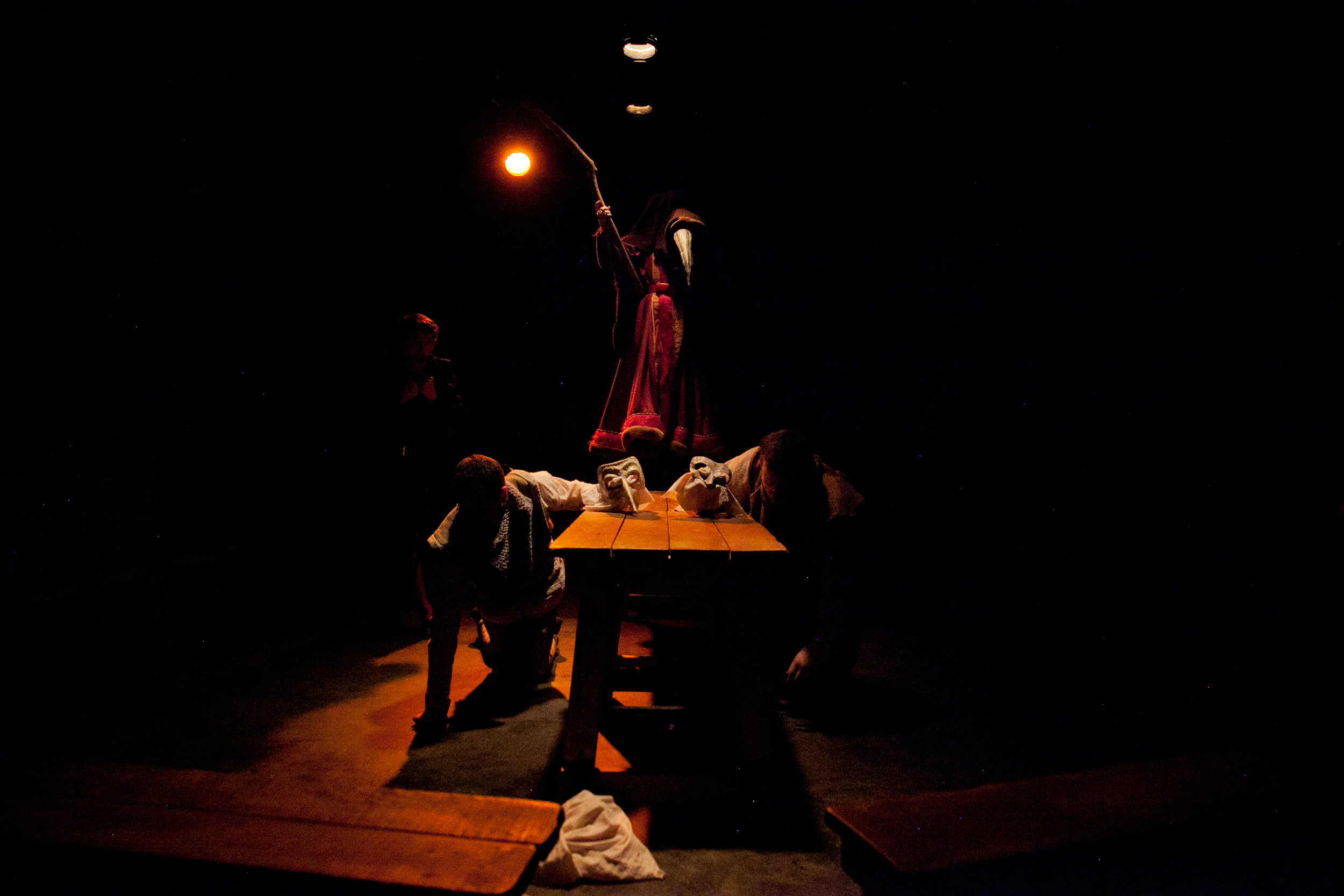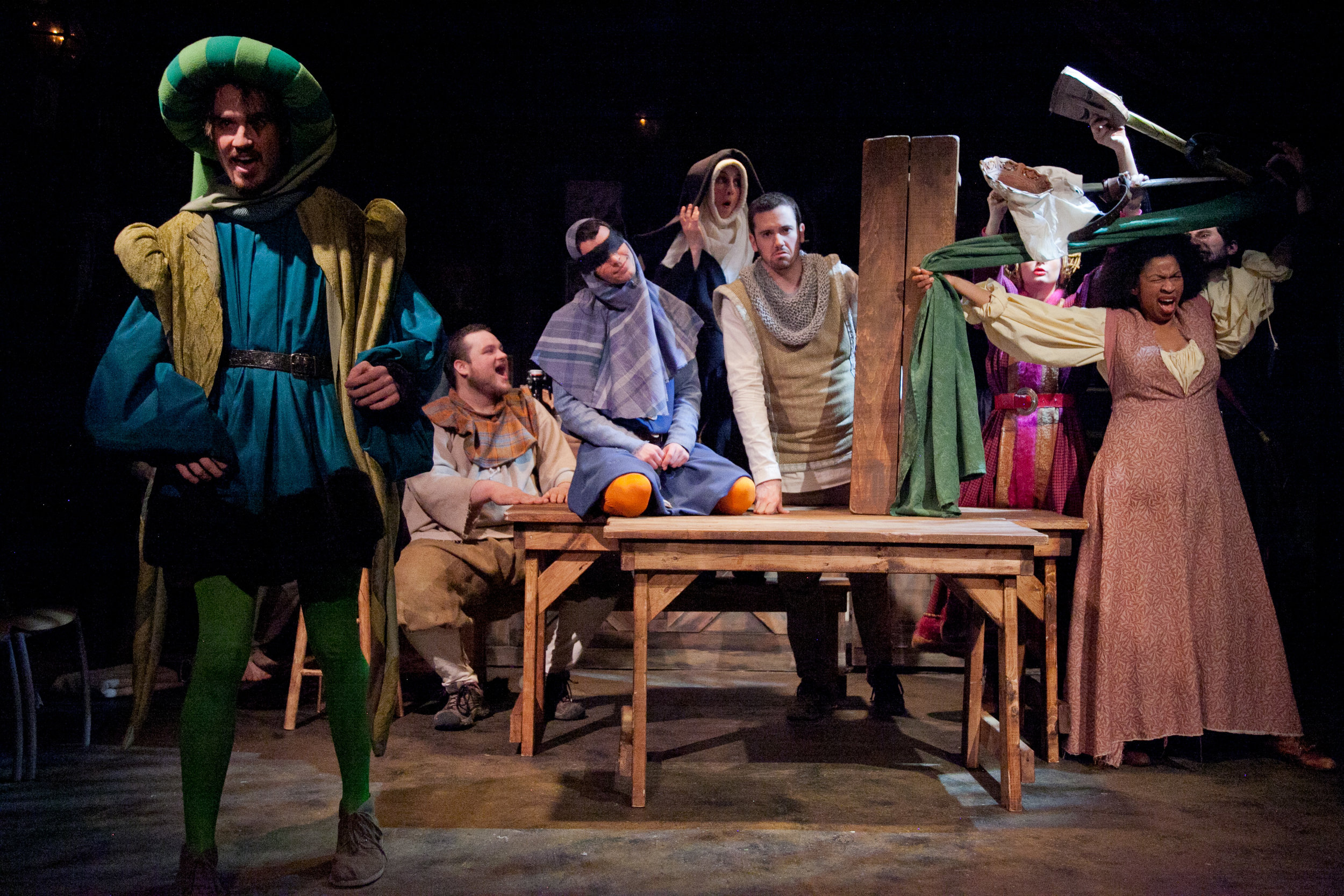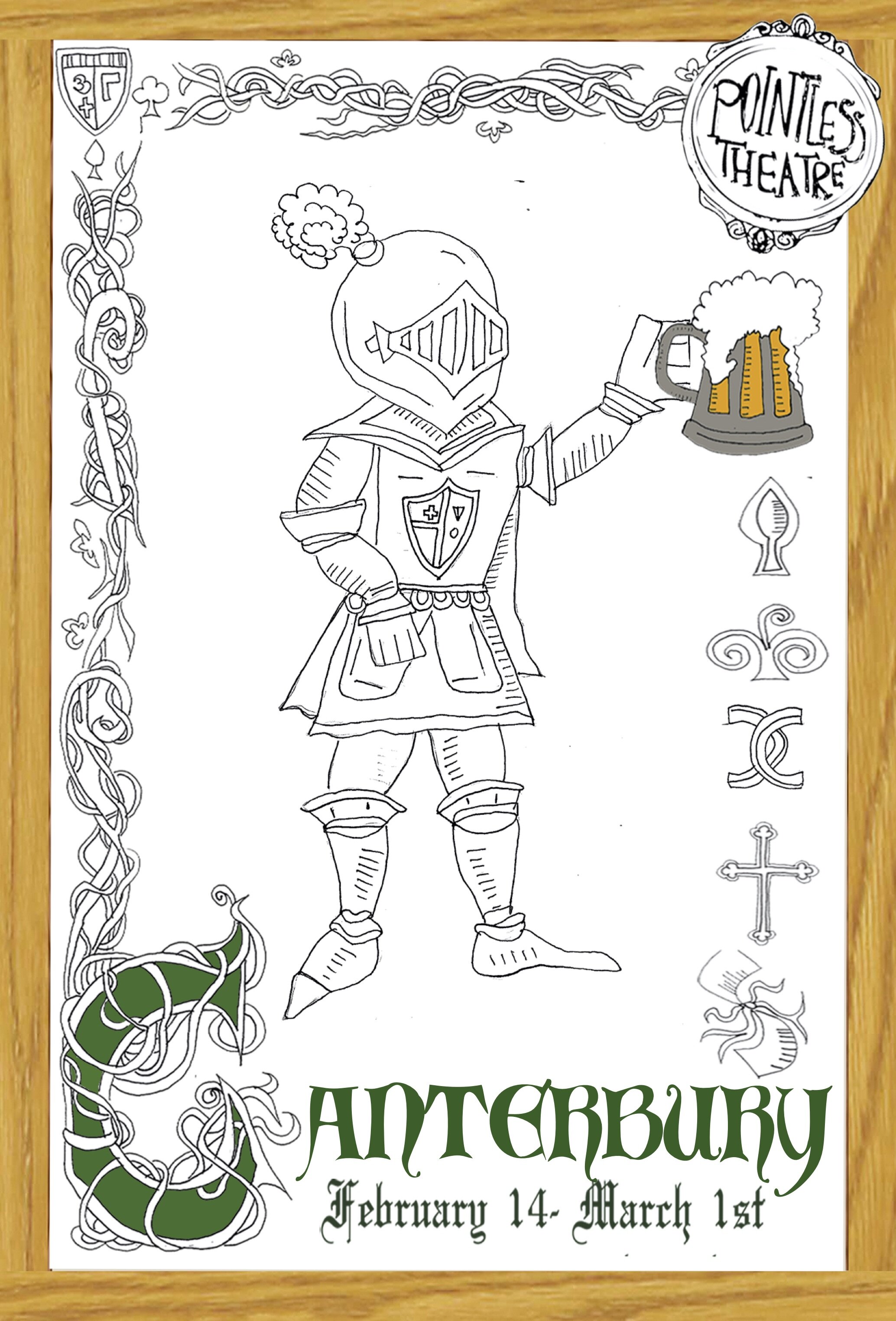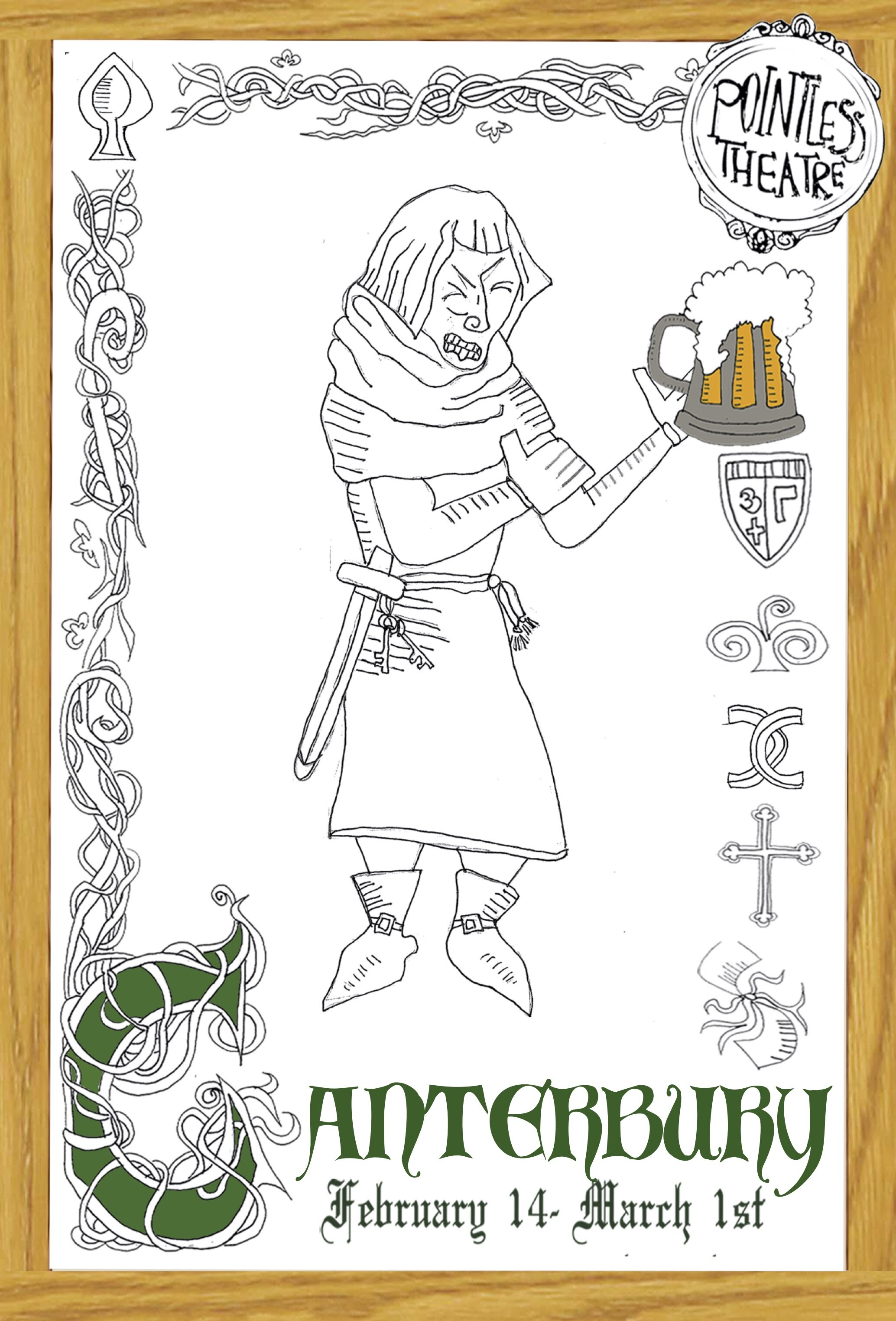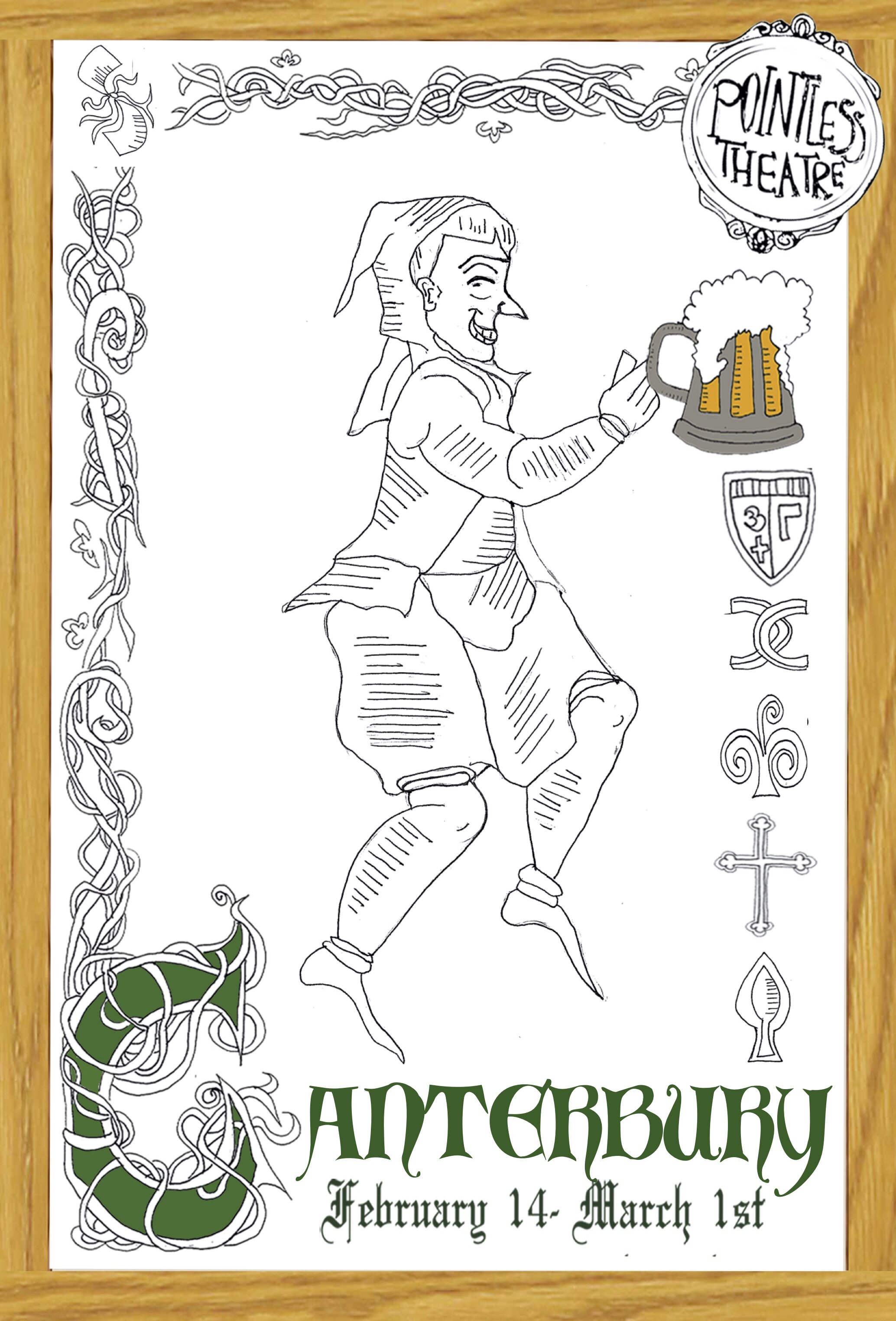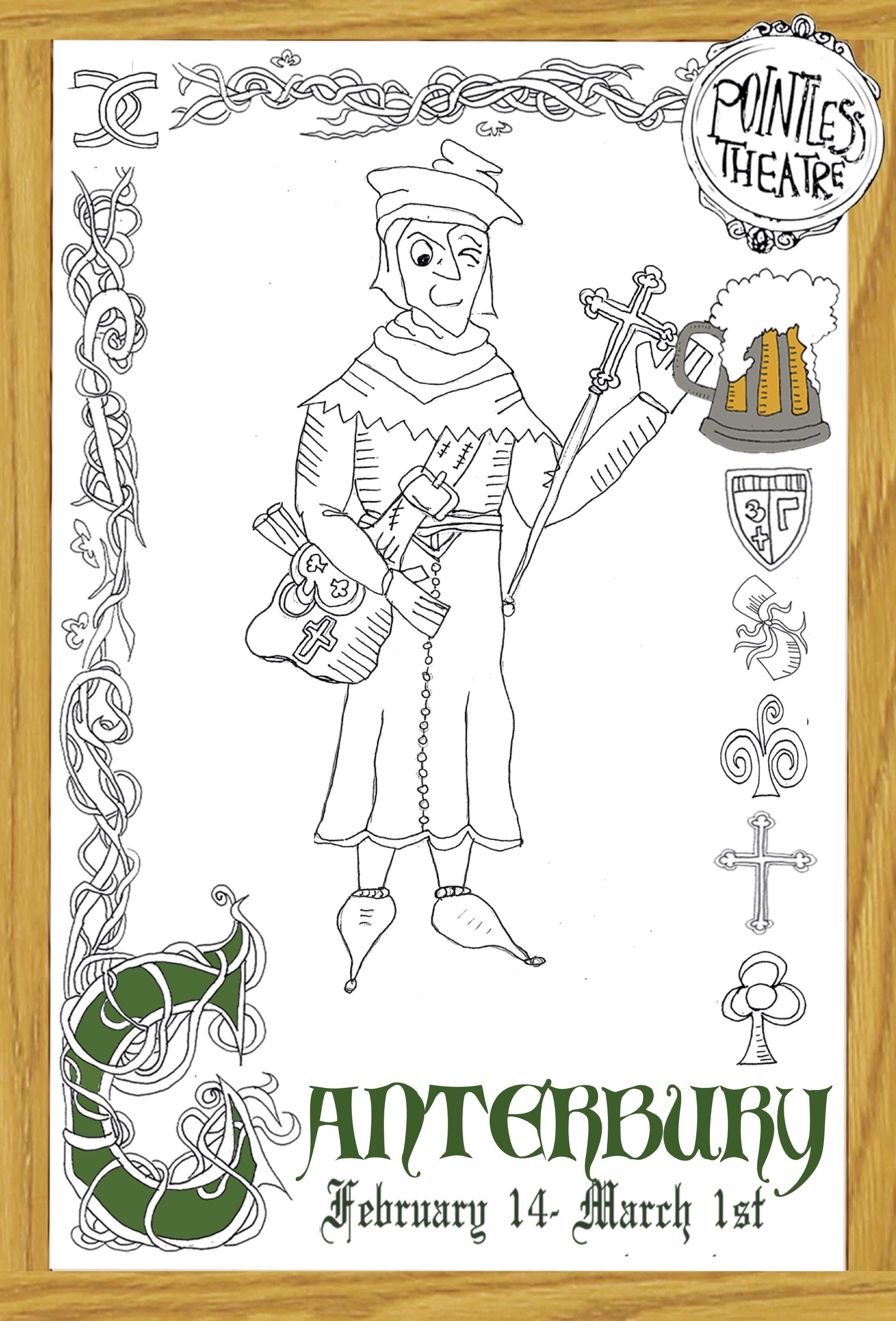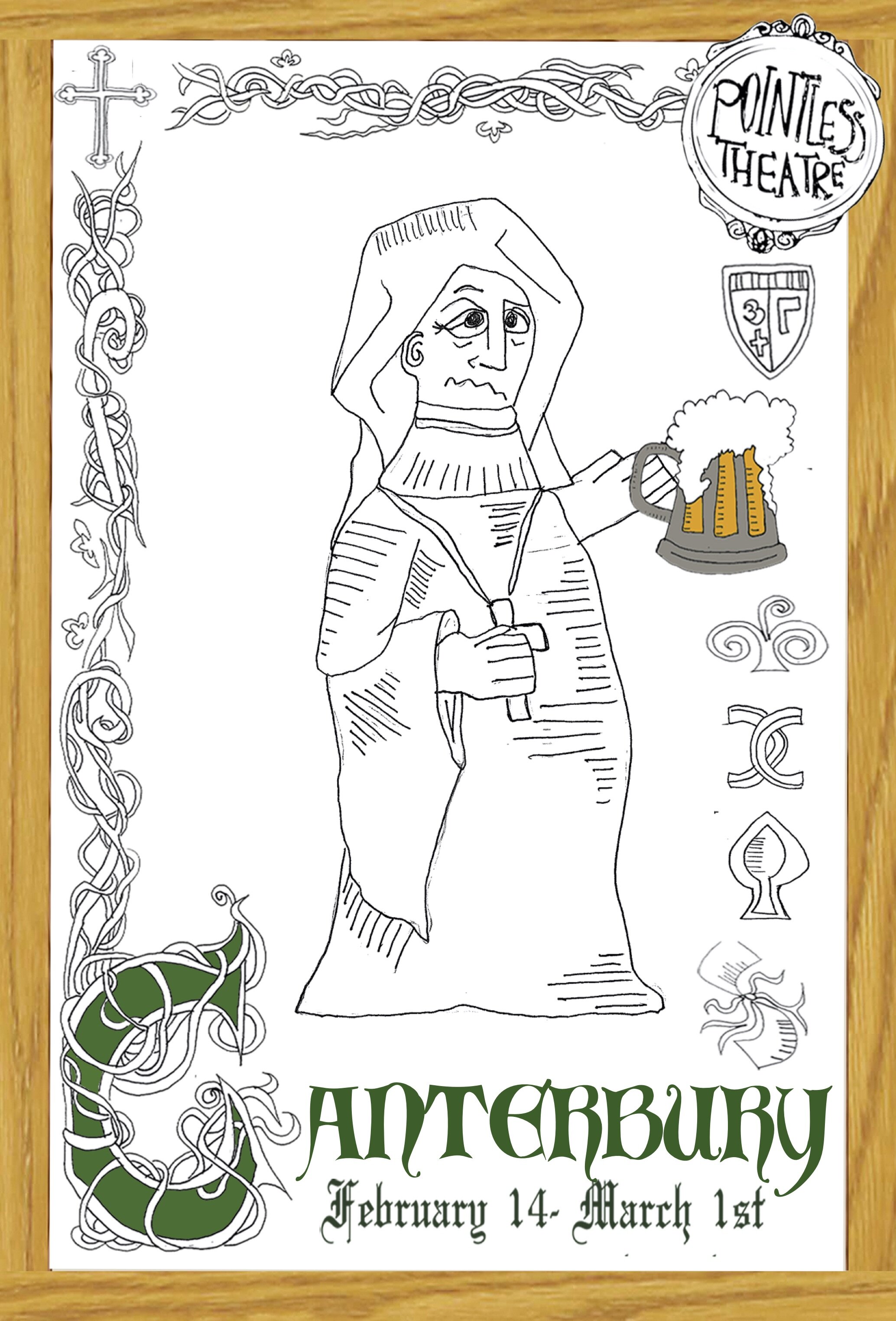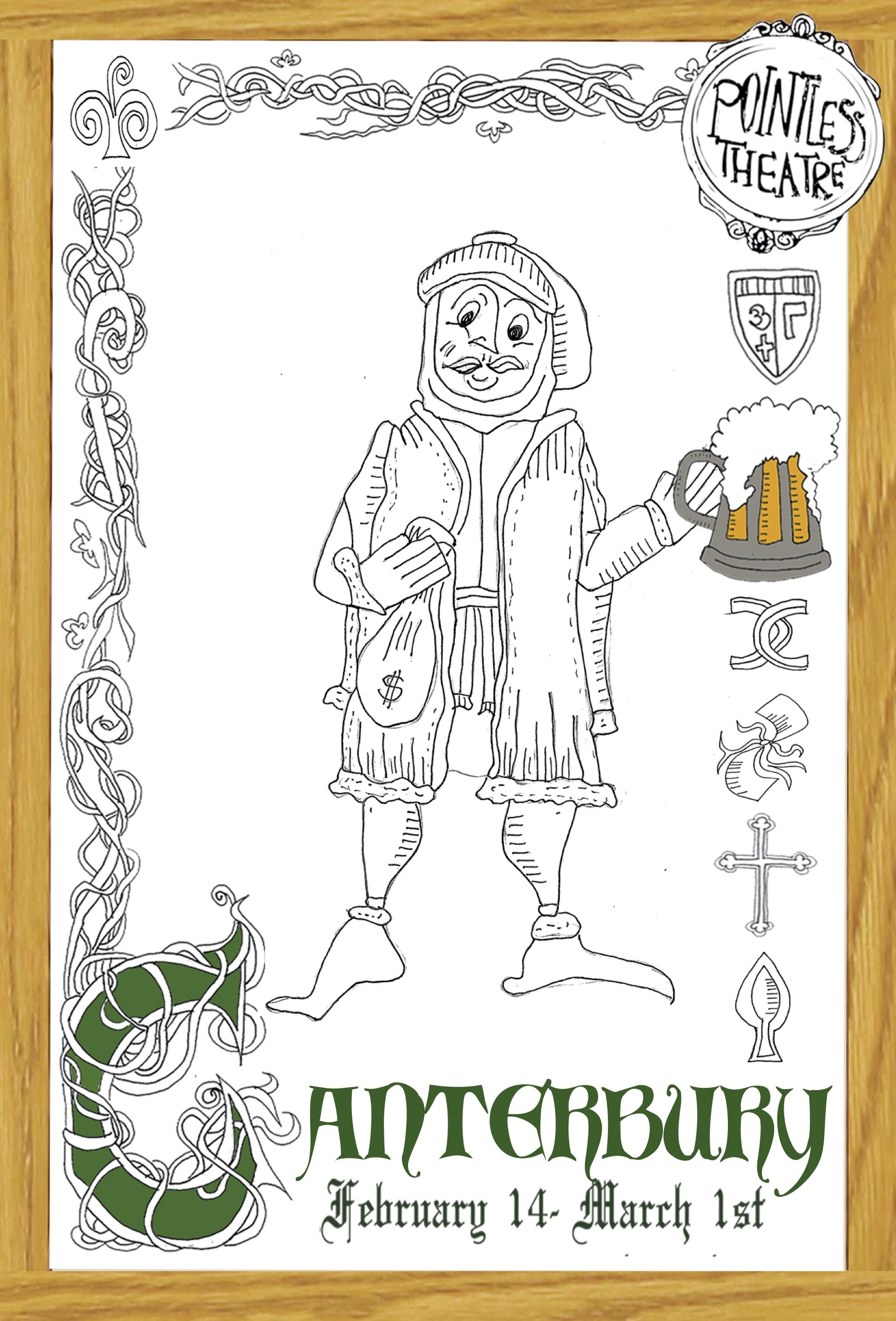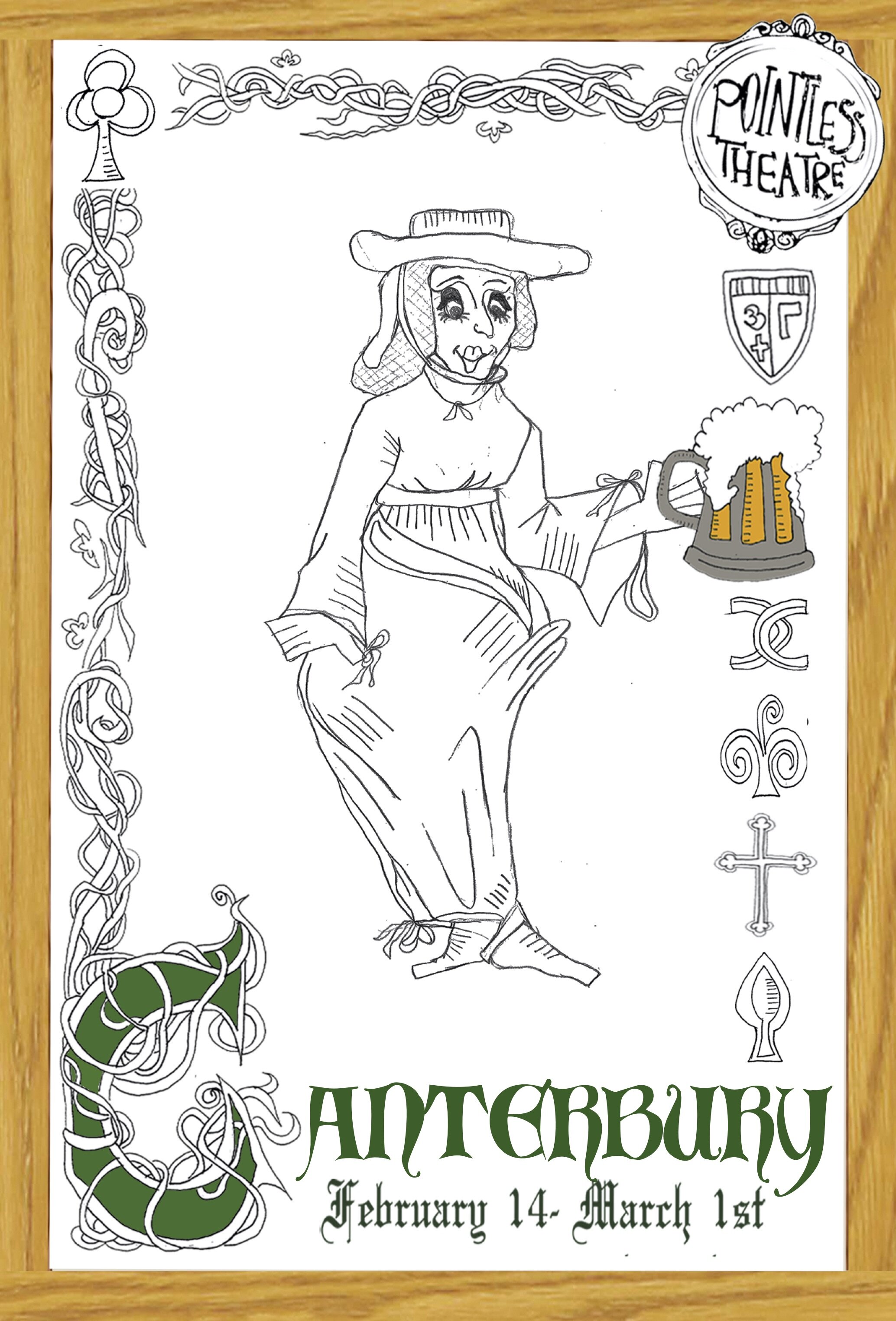A Nun Walks Into a Bar...
In this delightfully raunchy puppet adaptation of Chaucer’s The Canterbury Tales, a handful of medieval drunkards share their wild and wonderful tales of the Middle Ages, accompanied by live musicians. Come raise a glass in the name of promiscuity, puppets and pints.
“Canterbury is fast-paced, frenzied, and joyful...It’s inspired and energetic, with seemingly limitless imagination...The sum of the production’s parts is more than just a high-quality show; it’s excitement. It’s everything I hope for when sitting in a darkened theatre before the curtain rises, and so rarely find.”
Co-Artistic Director Matt Reckeweg in conversation with Board Chair Caroline Wilkins.
PRESS
5 Stars - DC Metro Theater Arts
"..the kind of production that pumps life blood into the Washington D.C. theatre community." - DC Theatre Scene
ENSEMBLE &
CREATIVE TEAM
MATT RECKEWEG Director
ALEX LEIDY Adapting Dramaturg
PATTI KALIL Set & Puppets
NATALIE DRUTZ Costumes
OWEN MCCUSKER & MICHAEL WINCH Music
JEDIDIAH ROE Lights
SADIE LEIGH Assistant Director
MEL BIELER Stage Manager
SARAH WILBY Assistant Stage Manager
Writers
NATALIE PIEGARI The Knight
GABRIELLA YACYK The Miller
SARAH E. WILBY The Reeve
MARK HALPERN The Pardoner
JOHN HAMILTON The Nun
BRENDAN EDWARD KENNEDY
The Merchant
ANN & SHAWN FRAISTAT
The Wife of Bath
Cast
FRANK CERVARICH Merchant
LEX DAVIS Miller
LEE GERSTENHABER Wife of Bath
MAYA JACKSON Host
NOAH LANGER Pardoner
RACHEL MENYUK Nun
MATTHEW SPARACINO Knight
SCOTT WHALEN Reeve
SARAH WILBY Understudy
Musicians
NAILL OWEN MCCUSKER
MICHAEL WINCH
—
Canterbury premiered April 2013 at the Mead Theatre Lab at Flashpoint
PROGRAM NOTE
The Road to Canterbury: How and Why Pointless Theatre is doing Chaucer
Right off the bat, it should be said that Canterbury is not a particularly reverent adaptation of Chaucer’s The Canterbury Tales. This is not something we at Pointless Theatre want to downplay; in fact, the idea of producing a perfectly reverent adaptation of one of the most famously irreverent works in the English canon seems kind of silly. It is, however, something that we want to acknowledge, as the source material has been a constant inspiration to us for the many months we’ve been working on this play.
A major change we’ve made is the addition of puppetry and performance to the storytelling game that forms the backbone of Chaucer’s collection of stories. This tweaking of the source text leaves Chaucer’s intent for the game intact, while allowing us to explore how the change from being read to being performed can make a collection of stories written more than 600 years ago more accessible to modern audiences. Some liberties have also been taken with the characters, in particular the Nun and the Host. Our Nun bears little resemblance to Chaucer’s, and is an amalgamation of the Nun’s Priest, the Second Nun, and a good deal of research on the life of lower-ranking nuns in Late Medieval England. The Host in our tale is also a character of our own creation, inspired by Chaucer’s Host but not directly indebted to him. We have also adapted the language of these tales, which are not being performed in the original Middle English. Our ensemble of playwrights has adapted the seven tales we are presenting into contemporary American English prose, with two tales using contemporary verse as well. This change in the language is a big part of our attempt to bring The Canterbury Tales into the context of a performance for contemporary audiences, by illustrating how the rhythms of these stories feel just as immediate in today’s language as they did when they were written in the late 1300s.
So why adapt Canterbury in the first place? One reason is how applicable it is to this particular moment in America, how similar Chaucer’s Late Medieval England is to our contemporary United States. England in the early 1380s – when Chaucer had finished as much of The Canterbury Tales as he was able to write – was going through a period of dramatic political and religious change. In 1381, Wat Tyler led a peasant’s revolt that dragged the disenfranchised citizens of England into the streets of London, a public display of displeasure with the class and economic systems of England that feels all too familiar only one short year after the Occupy movement claimed the public spaces of cities all across the United States. In the catastrophic wake of the black plague’s arrival in England in 1348 and the Western Schism dividing the Catholic Church, an increasingly loud segment of the English populace began voicing displeasure with Church practices, like the selling of indulgences, which Chaucer manifests in Canterbury's unctuous Pardoner and Summoner. This increasing dissatisfaction with organized religion has been expressed following President Obama’s reelection. A number of news outlets started publishing stories about how the nonreligious are forming an ever-larger and more influential voting bloc and how young evangelicals are turning their backs on their parents’ interpretation of their religion over social issues like LGBT rights and contraception. Economic systems were also in flux in Late Medieval England as they are in the contemporary United States. The rise of a merchant class caused a significant change in the economic status quo of Chaucer’s world the same way the widening wealth gap and slow erosion of the middle class is poised to significantly change our economic system in coming years.
The similarities between Chaucer’s Late Medieval England and our contemporary America are significant, but it’s not our goal to produce a play about how Chaucer’s world mirrors our own. Canterbury is Pointless’ attempt to explore storytelling – why and how we tell stories and what we hope to get out of it. The pilgrims in the Tabard Inn are doing nothing different than a bar crowd would do today: they’re drinking, socializing, and sharing stories for reasons as varied as to make a sale, seek emotional validation, or even just try to get a laugh. In the end, this is what we in Pointless are hoping to celebrate through Canterbury, the essentially human need to tell stories as a way of simultaneously making our way in the world and making sense of it all. We’re thrilled to have you join us in the Tabard Inn, and we hope that you enjoy the stories you’re about to hear as much as we’ve enjoyed telling them.
Alex Leidy, Adapting Dramaturg
